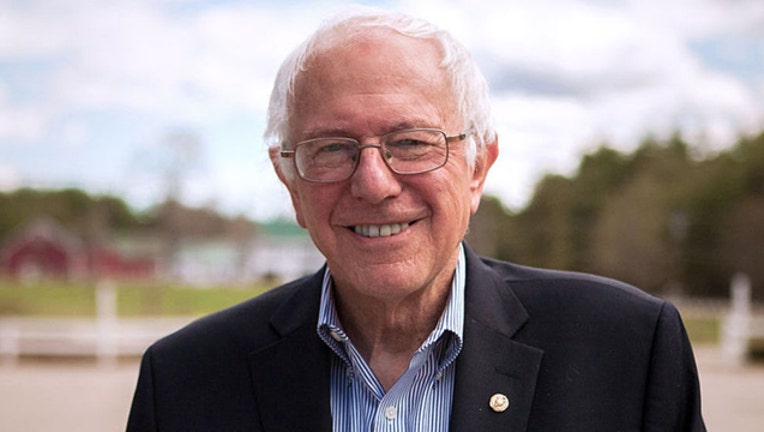Sanders sweeps, wins Alaska, Hawaii, Washington Democratic caucuses

Sen. Bernie Sanders won the Alaska, Washington and Hawaii Democratic presidential caucuses on Saturday by decisive margins -- victories he hopes will spark a Western states comeback and help him cut into frontrunner Hillary Clinton’s substantial lead.
"We knew things were going to improve as we headed west," Sanders said at a rally in Madison, Wis. "We are making significant inroads in ... Clinton's lead ... We have a path toward victory."
Sanders won Alaska 81-to-18 percent; 68-32 in Hawaii and 73-26 in Washignton over Clinton, with all precincts reporting.
Washington was the biggest prize, 101 delegates, followed by Hawaii with 25 and Alaska with 16.
Going in the contests, Clinton led by roughly 300 pledged delegates.
Sanders, a democratic socialist, on Saturday acknowledged his struggles in recent contests across the South, with its strong conservative voting bloc. But he remained optimistic about upcoming contests in the more liberal West including those in Oregon and California, which alone offers 546 delegates.
The next Democratic and Republican primaries are April 5 in Wisconsin.
Sanders is popular among younger and more progressive Americans but continues to struggle to connect with Hispanic and African-American voters.
He will win at least nine delegates in Alaska. And all of them are elected to the state Democratic convention, not the party's national nominating convention in July in Philadelphia.
Before Saturday, Clinton had a 1,223-to-920 lead on Sanders in so-called pledged delegates, who are bound to candidates by their states' elections.
It takes 2,383 delegates to clinch the nomination.
Sanders was expected to do well in Washington, considering residents of Seattle, the biggest city in the Pacific Northwest, are among the most liberal in the country and major campaign contributors.
He drew more than 10,000 supporters to a rally Friday evening at Safeco Field in Seattle. And by Saturday afternoon, the state appeared to be having a record voter turnout, which has helped keep alive Sanders’ insurgent campaign.
In Spokane, a huge line of caucus attendees had already snaked around a high school parking by Saturday morning.
"I think one of the biggest things is free tuition for students and getting big money out of politics," said Savannah Dills, 24, a college student who supports Sanders. "He's not paid for by billionaires."
Top Sanders adviser Ted Devine recently told FoxNews.com that he was optimistic about the campaign cutting Clinton’s lead this weekend to under 300 delegates “with a couple of thousands more delegates to go.”
Most of the Washington’s Democratic leadership had endorsed Clinton, including Gov. Jay Inslee, Seattle Mayor Ed Murray and Sens. Patty Murray and Maria Cantwell.
Still, Sanders entered Saturday’s contests optimistic after winning more delegate than Clinton in three contests earlier this week -- nearly 20 in the Idaho and Utah caucuses, despite losing the marquee Arizona primary to the former secretary of state.
Sanders has done significantly better in caucus contests, now winning nine of the last 11.
Most of his 14 primary-season wins have been in states with largely white populations and in the caucus contests, which tend to attract the most active liberal Democrats.
Yet Sanders still needs a dramatic surge to catch Clinton or even hold her under the number needed to clinch the nomination, despite the optimism and fundraising numbers, which also include collecting more than $140 million from 2 million donors.
Clinton did not hold a public event after the Alaska and Washington results were announced.
While Sanders faces a steep climb to the nomination, a string of losses for Clinton would highlight her persistent vulnerabilities, including concerns about her trustworthiness and weak support among younger voters.
Read more on FOX NEWS.

